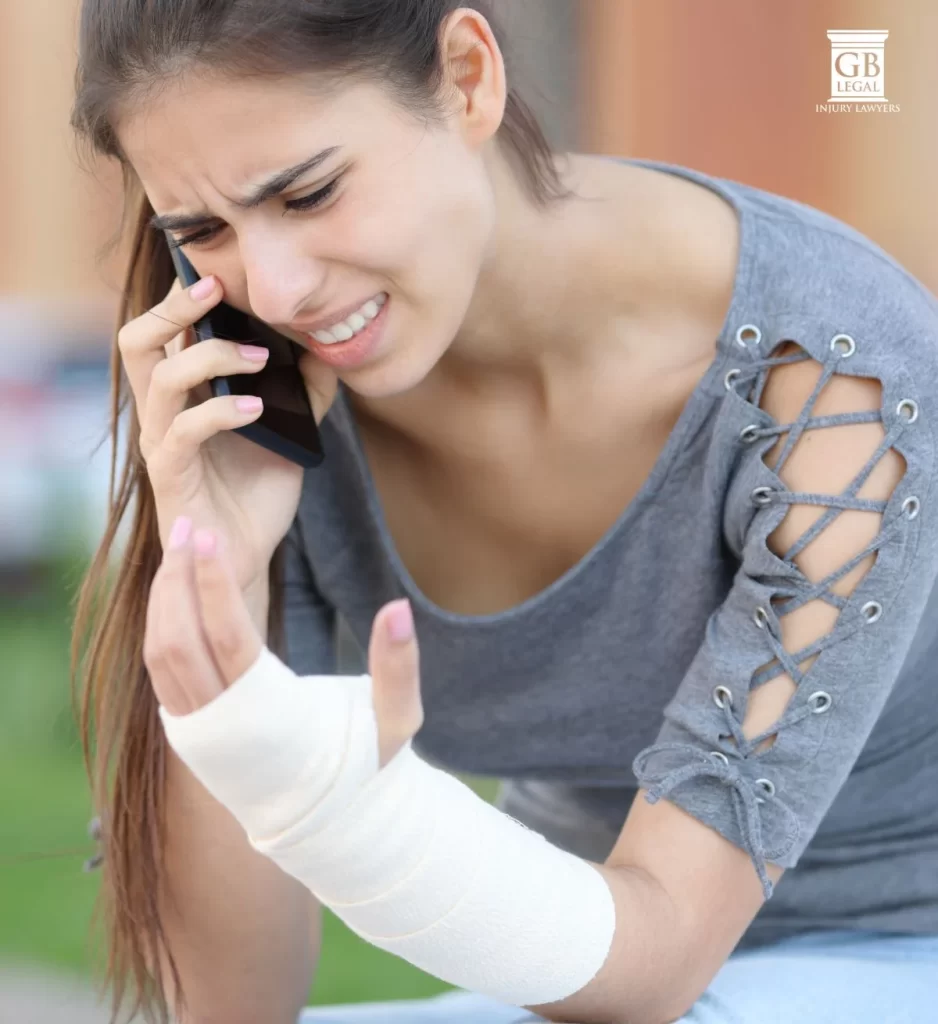If you have endured an animal attack and are wondering to yourself, “Should I worry after a dog bite?” the Sacramento dog bite attorneys at Guenard & Bozarth, LLP can help. It is essential to apply an adequate level of worry and concern after a dog bite, as even the smallest of incidents can lead to serious disease. You should seek medical attention immediately if you notice signs of infection, systemic symptoms, or deep wounds.
If you have been bitten by a dog, especially a dog with which you are unfamiliar, it is important not to assume that they are disease-free unless you have proof of their vaccination records. Even still, it is better to seek the advice of a medical professional than to assume you will be fine.
Immediate Actions to Take After a Dog Bite
Taking immediate and thorough action after a dog bite is crucial to prevent infection and other complications. An animal attack can be shocking and painful, and it can be hard to know how to respond in the heat of the moment. Understanding helpful steps to take before this happens is essential to responding efficiently and effectively. Consider taking the following actions after a dog bite incident:
- Ensure Safety: Move away from the dog to prevent further bites as soon as possible. If the dog is aggressive, make sure it is secured, or that help is on the way. If someone else has been bitten, ensure they are calm and sitting or lying down to help lessen the shock.
- Assess The Wound: Examine the wound to try to understand the extent of the injury. Look for puncture wounds, avulsions (where the skin is torn away), and lacerations. If the bleeding is heavy, work to stop the bleeding by applying pressure directly on the wound. If possible, place a clean cloth on top of the wound to prevent further contamination.
- Clean the Wound: First, wash your hands before addressing the wound and allow clean running water to rinse the bite wound for several minutes if possible. This can help to flush out debris and bacteria. Use a mild soap to gently clean the area around the wound. Apply an antiseptic solution to the wound. This can include iodine, hydrogen peroxide, or rubbing alcohol. Finally, an antibiotic ointment is applied, and the wound is covered with a bandage.
- Seek Medical Attention: Even if a bite seems minor, it is wise to get a professional opinion. Contact medical care and take the steps that they recommend to remedy the wound.
Even after you have had the council of a medical professional, it is essential that you are on the lookout for signs of infection. This can include redness, swelling, and warmth around the bite area. If there is pus or other unusual discharge, or you are experiencing a fever, chills, and swollen lymph nodes, it is highly likely the wound has become infected.
It is possible that your injury may be eligible for compensation from the dog owner. To set yourself up for a successful claims process, it is important that at the time of the incident, you record several pieces of information. This includes the owner’s name, contact information, and information regarding the dog. You can also report the incident to local animal control or health departments, especially in the event of a disease, as this can prevent future incidents in the area.
Immediate and thorough action after a dog bite is essential for preventing infection and promoting healing. Proper wound cleaning, applying antiseptics, and seeking medical attention are critical steps.
FAQs
Q: How Do You Know If a Dog Bite is Serious?
A: The first indicator of how serious a dog bite wound is the appearance of the wound. You can examine the depth and size of the bite. It may be a serious bite if there is a deep puncture wound that is bleeding heavily. The location of the bite can also indicate the seriousness of the injury. Bites over large blood vessels and nerves are particularly dangerous, as well as bites to the face, neck, hands, or joints.
Q: When Should I Get Checked By a Doctor After a Dog Bite?
A: You should get checked by a doctor immediately after a dog bite if the skin is broken. Red flags for a serious wound include deep or large punctures, especially if they are located in particularly sensitive areas such as joints, nerves, and blood vessels. If you are experiencing heavy bleeding or noticing signs of infection such as redness, swelling, warmth, pus, or increased pain, see a medical provider as soon as possible, as the bite may be serious.
Q: How Long After a Dog Bite Does the Infection Set In?
A: The length of time after a dog bite that the infection sets in can vary, but typically, symptoms may start to appear right away. It is important to monitor the dog bite for signs of infection. Early signs of infection include minor redness, swelling, and pain around the bite area.
It is important to note that if an infection is left untreated, symptoms can worsen to a severe point, leading to systemic infection and other complications like cellulitis, abscess formation, or even sepsis. It is always advisable to speak with a doctor if you are unsure if there is or isn’t an infection.
Q: Can I Leave a Dog Bite Untreated?
A: Yes, you can leave a dog bite untreated, but this is not advisable due to the risk of infection and other complications. Not only do you increase the risk of infection by avoiding treatment after a bite, but other complications and diseases can also emerge, such as rabies, tetanus, nerve and tissue damage, and osteomyelitis. In severe cases, these diseases can lead to amputation or even death.
Speak With a Personal Injury Lawyer To Learn More
If you have suffered injury or damages due to a dog bite, you may have the merit to pursue legal action to receive compensation to cover your losses. Guenard & Bozarth, LLP has personal injury attorneys who will work to evaluate your case and assist you in understanding the steps that are available to you. Reach out today to set up a consultation and learn more.


